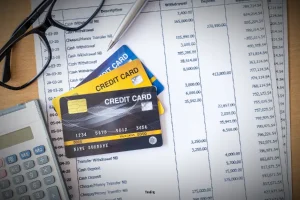Wealth-Building Strategies: How to Grow Your Assets and Achieve Financial Independence
Financial independence is a dream and a goal for many. This is the freedom to be on your own terms without fear that money might limit your quality of life. It seems rather enigmatic in reality, but worry not; it is still achievable.
First and foremost, you should be ready to make some changes in your lifestyle and spending habits and find the right strategies. To help you out, below we share the right wealth-building strategies.
Budget Wisely and Save Diligently
Living within your means is actually the core of building wealth. Therefore, budgeting is the roadmap to financial independence, leading a person to where their money goes and indicating areas where one could cut back.
Using the 50/30/20 rule as a guide, 50% should go to your necessities, 30% to your wants, and at least 20% should go to savings and paying off debt. The sooner you open up a savings account the better.
Look for a financial organization in your area that offers good interest rates and allows you to deposit exactly the amount you want to save.
For instance, if you are residing in Texas, opening a savings account in Texas with an organization that allows you to deposit the amount you are comfortable with, offers no contractual obligation as to how long your money has to stay within the organization, you have the option to earn dividends, you can rest assured that you will not only enjoy watching your deposit grow but also unparalleled convenience.
Invest Early and Often
Investing is how saved money grows into more money. The secret is to start early and allow compound interest to do its magic. It’s like having your money work for you while you sleep.
Remember, if you want to see success, consider diversifying your investments across stocks, bonds, and real estate to spread risk and increase potential returns. 401(k)s and IRAs are great starts for anyone in the world of investment. In their own ways, they do offer some tax advantages that can boost your investment growth.
And if applicable, by all means, maximize the 401(k) match with your employer.
Minimize Debt and Manage Credit
Debts are the greatest challenge to financial independence. In particular, those with high interest, such as credit cards, may cripple your capability to save and invest. So, paying off high-interest debts should be your top priority. This will cause a debt avalanche (where one starts by paying off the most interest-charging debt first).
Going on, good credit management complements debt management. It assists your creditworthiness, which, in return, facilitates you to borrow finances at favorable rates.
If your credit score is not that good, make sure to maintain timely payment of bills and you will get that number up again.
Increase Your Income
While cutting down on expenses is very important, looking to increase your income could have great potential. Look for opportunities in your current job by, say, asking for a raise or working towards a promotion.
Or, if that is not possible at the moment, think instead of side jobs or part-time gigs. Also, consider investing in new skills and furthering your education. And while it may cost you more, you will have a higher chance of landing a higher-paying job.
Plan for the Future
Set short-, medium-, and long-term financial goals that give you specific targets to work towards. This may include things like saving for a down payment on a house, funding your children’s education, or retirement planning. There should be a strategy and timeline for each goal.
And to ensure everything is on track, regularly review and adjust these goals as your financial situation evolves. Consider working with a financial advisor and a broker to develop an investment plan that will help you establish good financial standing for years to come.
Conclusion
The achievement of financial independence is never something that can be done overnight. In fact, it comes with discipline, patience, and a well-laid-out plan. By budgeting wisely, investing time, managing your debt, increasing your income, and planning for the future, you are actually laying a foundation for your financial security. Just remember that the journey to financial independence is unique for everyone.
What really matters is that first step, sticking with it, and making changes as your financial situation changes along the way.








